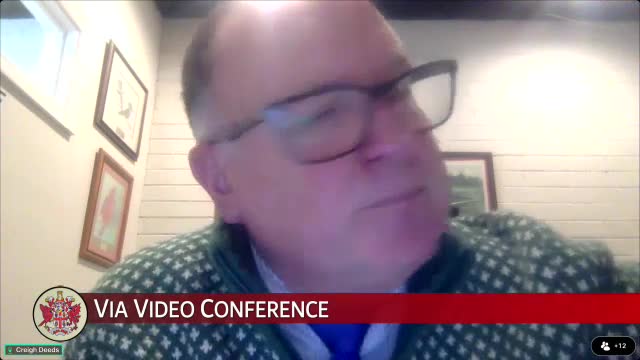Families and providers urge lawmakers to boost waiver funding, workforce pay and respite supports
Get AI-powered insights, summaries, and transcripts
Subscribe
Summary
At a joint Senate-House virtual budget hearing, caregivers, provider executives and people with disabilities urged lawmakers to increase funding for Medicaid waiver services, raise provider pay, fund workforce retention and restore respite for paid parent caregivers.
Speakers at a joint Senate Finance and House Appropriations virtual hearing urged the General Assembly to increase funding for Medicaid waivers, bolster pay and retention for direct support workers, and restore respite access for paid parent caregivers.
The testimony centered on workforce shortages and staff turnover among waiver providers, long waiting lists for services, and specific requests for increases in provider rates and funding to retain skilled staff. Steven Nape, who identified himself as living with a traumatic brain injury, told lawmakers, “1 in 30 Virginians are living with a disability from a traumatic brain injury.” He said providers that helped him are struggling to retain staff and asked legislators to support funding to retain that workforce.
Why it matters: advocates and providers said current reimbursement and pay levels leave programs unable to hire or retain trained staff, which in turn limits access to services for people on waiver wait lists or those already enrolled. John Witherspoon, chief executive officer of Wall Residences, a large Virginia provider, said recent increases do not cover new administrative costs and competitive wages and added, “Rates must increase by more than 3%.”
Parents and family caregivers described how low pay and limits on respite harm families’ ability to remain employed and to provide sustainable care. Amanda Adams, a mother of two children on the developmental disabilities waiver, said low pay for personal care attendants makes it impossible for her to hire help and called for higher pay. Erica Rogers, a paid parent caregiver and single mother, urged lawmakers to allow paid parent caregivers to receive respite, saying, “Paid parent caregivers need this respite desperately.”
Speakers also pressed for targeted investments for brain injury services. Steven Nape and Sierra Cox described long waits and staff turnover at Brain Injury Solutions, with Nape citing a roughly 30% staff turnover rate among some brain-injury service providers and warning that 6- to 12-month waiting lists leave people without needed supports.
Several witnesses asked the committees to consider broader rate increases across waiver services. Witherspoon urged the General Assembly to adopt the increase requested by Virginia Access, which he said would be about 35% for all waiver services, and to ensure sponsored residential services are included.
No formal action or vote took place during the hearing; the session collected public comment for the budget process. Lawmakers and staff listened and advised commenters they could submit written testimony through the General Assembly committee websites.
